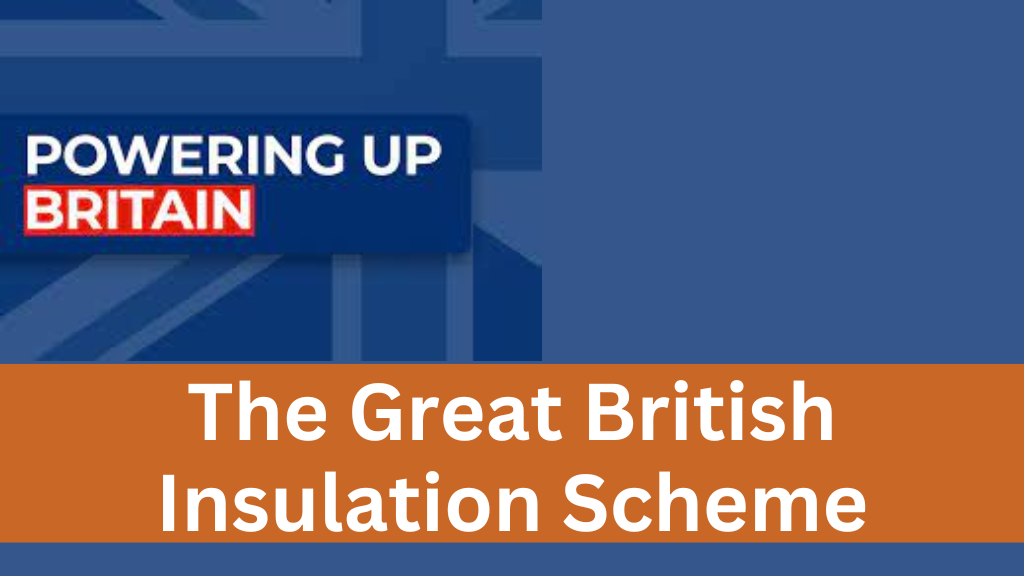In a press release on 30th March 2023 Energy Security Secretary, Grant Shapps, set out plans in an initiative known as “Powering Up Britain” to drive multi billion pound investment in energy revolution by outlining steps to strengthen Britain’s long-term energy security and independence to help deliver clean, prosperous future for the country. You can read the full announcement here >
Within this wider announcement came the news that, building on from decisive government action taken since 2021, measures announced would include:
“Cutting household bills by expanding Government energy efficiency support to even more households – The Great British Insulation Scheme, a rebranded ECO+, will upgrade 300,000 of the country’s least energy efficient homes.”
So, just what is this new Great British Insulation Scheme (GBIS)?
The supporting official press relrease stated:
The Great British Insulation Scheme (known hereafter as ‘the Scheme’), formerly referred to as ECO+, is a supplier obligation which is being developed by the UK Government’s Department for Energy Security and Net Zero (DESNZ). The aim of the scheme is to deliver energy efficiency upgrades in homes in Great Britain. A recent consultation highlights the benefits this would bring to homeowners – reducing energy bills and ensuring homes are warm and safe – and nationally – increasing resilience to price shocks and working towards the UK Government’s Net Zero targets (BEIS, 2022).
The Scheme will target the worst performing homes and include a ‘general eligibility group’, covering homes in the lower council tax bands, with an EPC of D and below. It will also cover a ‘low-income group’ targeting those on means tested benefits, in the least efficient social housing, or referred via a participating local authority or energy supplier and considered on a low-income or vulnerable. Under the scheme, suppliers may offer to install a single retrofit insulation measure with the cost partially or fully subsidised. For the general eligibility group, part of the cost of installing a higher cost measure may need to be covered by the homeowner.
How much will owner occupiers be willing to pay?
As an initial step DESNZ, the Department for Energy Security and Net Zero, conducted a research study to understand the extent to which owner-occupiers are willing to co-fund the installation of energy efficiency retrofit measures in their home. They commissioned the Behavioural Practice at Kantar Public UK to carry out this research.
The finding of this consulation have now been published – you can download a copy of the reseach findings report directly: Great British Insulation Scheme: willingness to co-fund: a discrete choice experiment – report >
Alternatively, more information can be found on the DESNZ website >
More about the scheme
The Great British Insulation Scheme is a UK Government scheme to help people insulate their homes, make them more energy efficient and save money on their energy bills. The scheme will launch by Summer 2023 and run until March 2026. Obligated suppliers may plan to deliver earlier under the scheme.
Previously trailed and consulted on as ECO+, the new £1 billion scheme will help around 300,000 households across the country with the cost of installing new home insulation and will save consumers around £300 -£400 a year on their bills.
The scheme will boost help for those on the lowest incomes, as well as extending support to a wider range of households living in the least energy-efficient homes in the country (those with an Energy Performance Certificate rating of D or below) and in the lower Council Tax bands (A-D and England, A-E in Scotland and Wales).This means more people than ever, particularly those struggling with their bills, will be able get help with the cost of making their home more energy efficient. Making our homes more energy efficient is the best way of cutting household energy use and reducing heating bills.
The scheme works by obligating energy suppliers to help customers to reduce their heating bills, through the installation of energy efficiency measures such as loft and cavity wall insulation. The cost of this may be covered in full through the scheme, or you may be offered the insulation for a contribution, depending on the measure and any property issues.
Once the scheme launches, households will be able to check their eligibility via GOV.UK or a participating energy supplier or local authority. If a household is eligible, they will then be contacted about arranging a survey of their home and to organise any installation.
Events to discuss the Government Response and provide some information about delivery of the scheme are being arranged to whic INCA will receive invites, watch this space …

